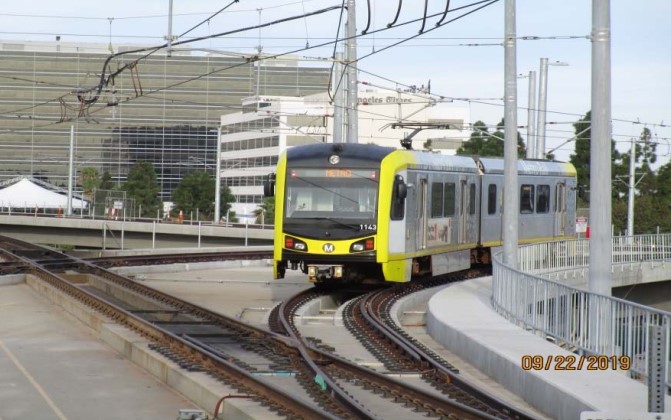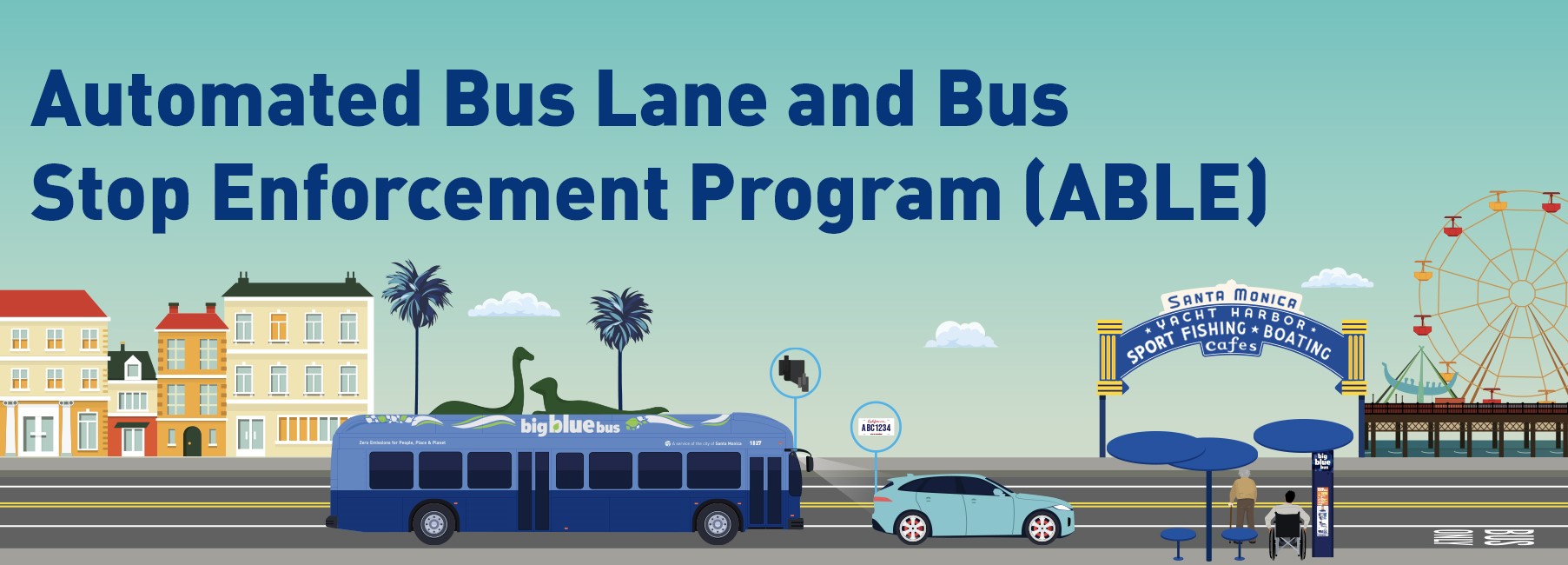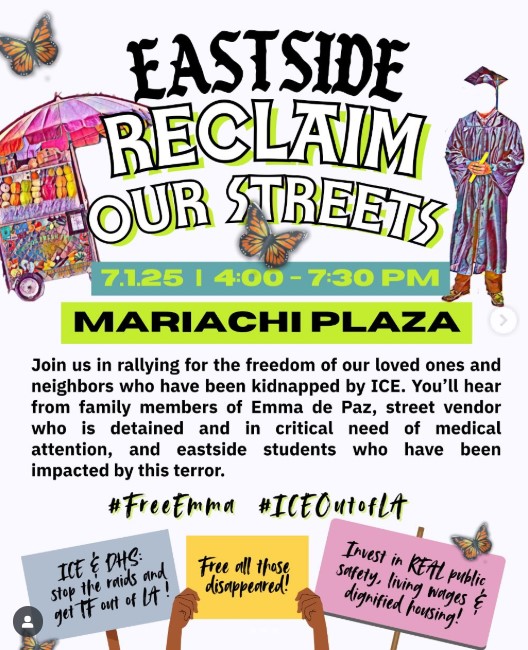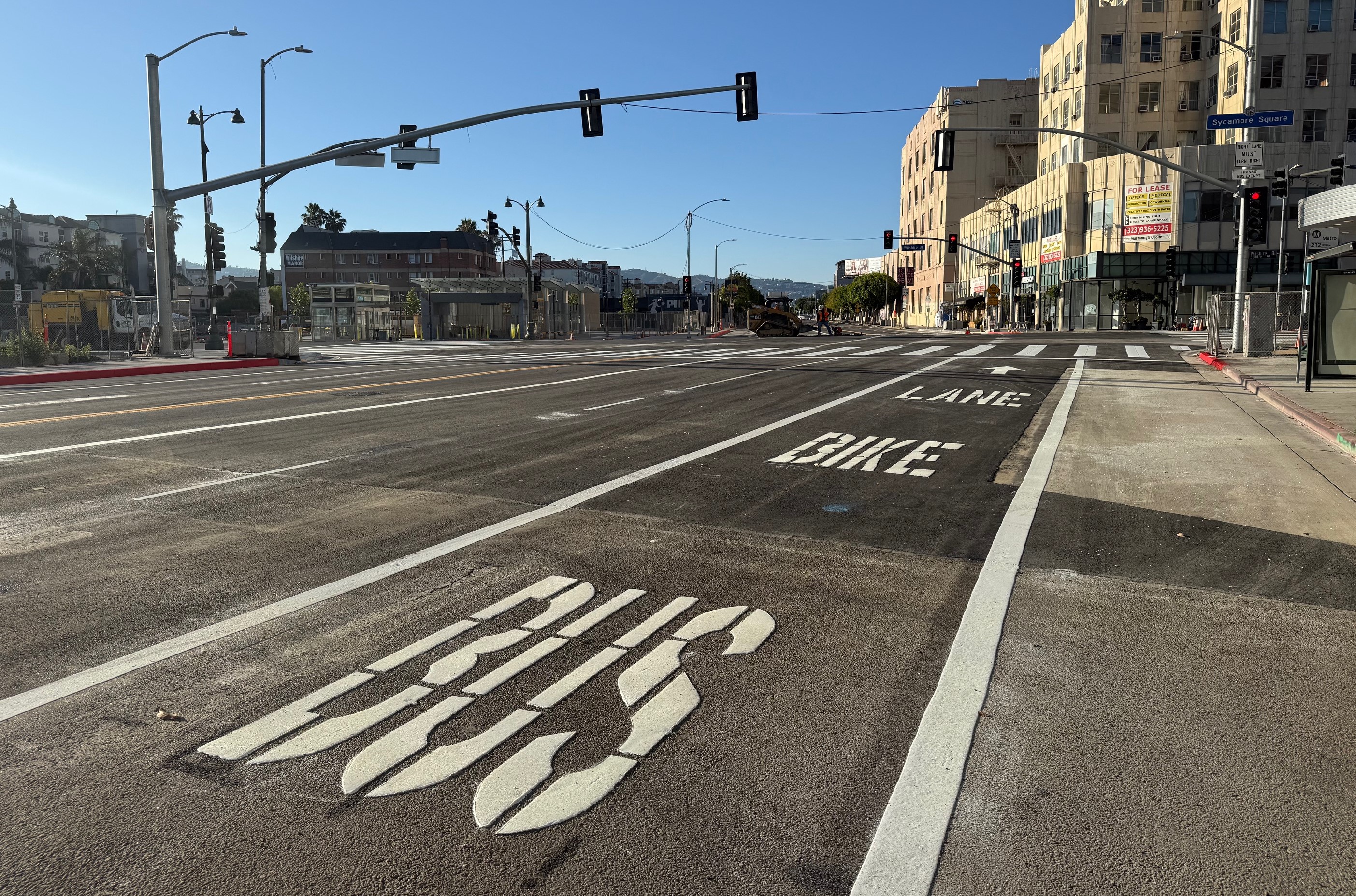After cancelling meetings in March, the Metro board resumed with committee meetings last week in advance of this week's board meeting. These committee meetings are the first Metro meetings during the COVID-19 pandemic. Several discussions shed light on how the agency has been dealing with the crisis, and offered a peek into the looming budgetary implications.
Below is a rundown of some of last week's Metro board committee discussions and some of what to expect at this Thursday's board meeting and in the months and years ahead.
Some big COVID-19 budget revelations were in a board letter alluded to by CEO Phil Washington. Overall, Metro is projecting roughly $1 billion in anticipated revenue lost through September 2020.
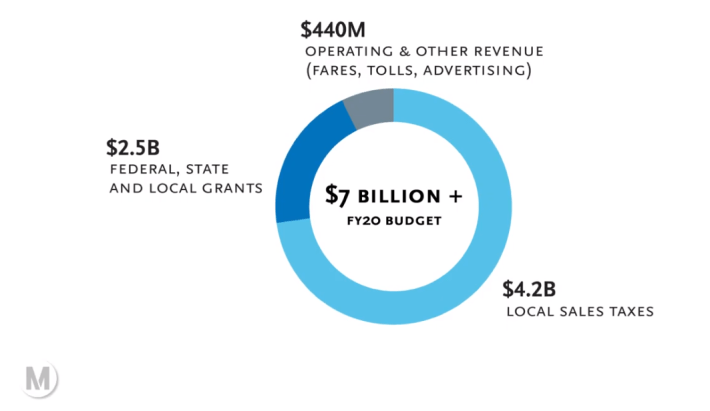
Multiple sales tax initiatives have provided for nearly two-thirds of Metro revenue in recent years; they account for $4.2 billion in the $7.2 billion FY20 budget. Due to the COVID-19 recession, Metro is projecting sales tax revenue losses at "over $800 million through September 2020" - losses of roughly $100 million per month - compared to forecasted revenue. Some sales of this funding is effectively a pass-through - about a quarter of it is the $1.4 billion local return program - but it also supports construction, operations, planning, etc.
Operating revenue is also seeing big losses, though it comprises only about six percent of Metro's budget. Washington's letter reported these revenue dips based on a comparison of 3/26-4/1/2020 versus 3/28-4/3/2019:
- Bus and rail transit, which are effectively operating free, saw a 93 percent fare revenue loss. Washington expects monthly fare revenue losses to be $19-23 million per month. The current FY2020 budget shows $284 million in total fare revenue, which averages to $23.7 million per month.
- ExpressLanes toll revenue is expected to see a $25 million loss through September 2020. That projection is a roughly two-thirds loss of Metro ExpressLanes revenue, currently budgeted at $58.4 million annually.
Metro's projected losses almost exactly match the just over $1 billion allocated to L.A. County via the Federal CARES Act COVID-19 stimulus. Though Phil Washington committed to dedicating "most" of the stimulus monies to operations, this process is not simple. L.A. County monies go through the Southern California Association of Governments (SCAG). The funds are split between Metro and 17 Municipal Bus Operators ("Munis"). The stimulus money can pay for expenditures on a reimbursement basis, so it cannot be used to simply backfill lost revenue. Administrative logjams at SCAG and the Federal Transit Administration (the same FTA that just delayed Metro's congressionally-approved subway construction funding for more than two years) could mean serious delays.
As SBLA reported last week, rail ridership is down 75 percent, and bus ridership is down 65 percent. Metro has cut rail service 15 percent and bus service 30 percent. Metro is evaluating partially closing seven B (Red) Line subway stations with multiple entrances.
Rail and bus ridership are both down dramatically. Ridership is down more on rail than bus, but the service cuts coming Sunday hit bus service harder, which makes little sense.
— Mike Bonin (@mikebonin) April 16, 2020
In operations discussions, Boardmember Mike Bonin pointed out that deeper bus cuts appear to point to a "structural bias" favoring rail over bus.
Bonin requested that Metro recovery plans prioritize equity. Bonin asked Washington if Metro's Equity Officer KeAndra Cylear Dodds was included in Metro's internal task force (whose proceedings are currently hidden from public accountability). Washington acknowledged that she was not, but that “she will be.”
The Metro board construction committee approved funding $19 million in cost overruns to complete the in-process renovation of the Rosa Parks Willowbrook Station on the A and C (Blue and Green) Lines. The committee did not approve $120 million ($90 million for the current contractor and $30 million for later close out costs) in cost overruns for the Crenshaw/LAX light rail construction, pushing the items off to May meetings. Metro has delayed that project's opening until mid-2020; Metro's construction chief Richard Clarke posited a "June-July 2021" opening, while Washington stated he is looking at "Spring 2021."
At a time when it is difficult to tune in via glitchy feeds with crap audio, Metro is not making it easy for the public to follow along. Some of this stems from Metro still getting up to speed with the technology to support remote meetings. Several boardmembers complained of the same glitches that the public was experiencing. Meetings that start well after their posted times are difficult to access, as they have scrolled off of Metro's upcoming meetings page, but fail to appear on Metro's past meetings page. Metro's past meetings page takes more than 24 hours for audio/video files to be posted (this has always been the case, but it makes it difficult to retroactively catch up on items cut off when feeds cut out).
But some problems nonetheless feel a lack of a commitment to removing barriers to participation and transparency.
Metro's public comment system apparently failed during several of last week's committee meetings. Bonin resorted to reading public comment that had been texted to his staff - a process clearly not available to the general public.
Metro's public feed is not the same as what its board sees. Several boardmembers mentioned seeing each other and staff speakers, but these are not displayed in Metro's public feed (which shows only the agenda and presentations slides.) Speakers do not consistently introduce themselves, making it difficult for even experienced board-watchers to understand who is speaking.
Washington mentioned "board box" letters that are not available to the general public. These board boxes are apparently released a few times each month - based on Public Records Requests after which they appear on an undisclosed unformatted Parent Directory screen (shared by Metro communications Steve Hymon via Twitter today) where they are available as non-searchable PDF files.
Metro is scrambling to respond to an unprecedented COVID-19 crisis. The agency has done well to maintain as much core mobility services as possible during very difficult times. Nonetheless, as Investing in Place has stressed, equity and transparency will be crucial during Metro's COVID-19 recovery.
